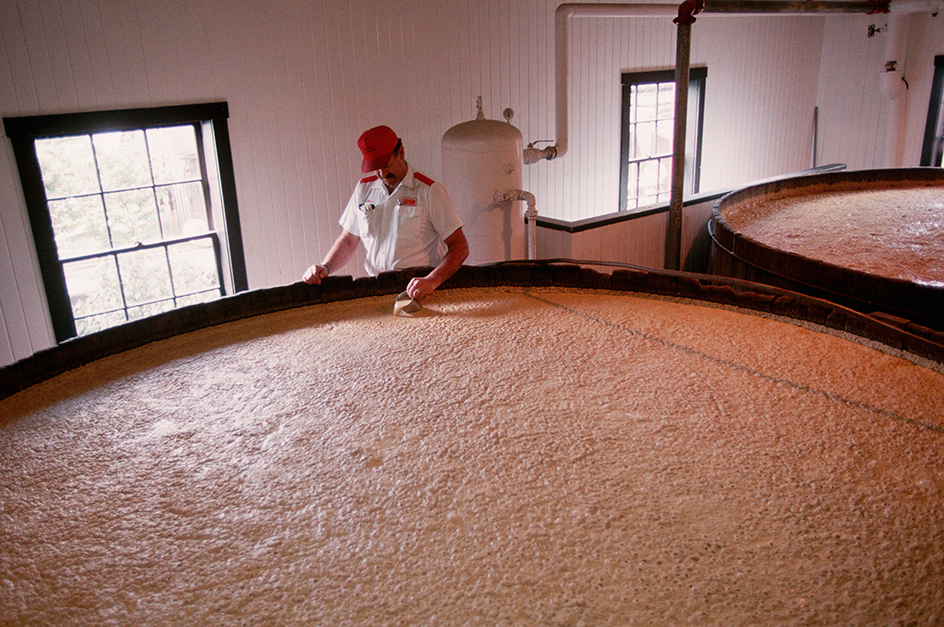Distilling is a process used in manufacturing various alcoholic beverages, including whiskey, brandy, vodka, gin, and rum. These beverages, sometimes called spirits, are made from a “mash” of grains or from various fruit juices. Sugar in the mash or juice is converted into alcohol by a chemical process called fermentation (see Fermentation). Distilling begins when the fermented mixture is heated, turning the alcohol into vapors. The vapors are collected and then cooled back into a liquid to produce alcoholic beverages (see Distillation).

Distilling takes place in equipment called a still. There are two main types of stills. The pot still distills one batch of liquid at a time. It is used to make tequila, Scotch whisky, Irish whiskey, and a type of brandy called cognac. Other spirits are made in column stills, which permit continuous distillation. Column stills are the type most often used by distilleries in the United States to make whiskey and vodka.
Most kinds of spirits contain from 40 to 50 percent alcohol. All spirits are colorless when first made. But whiskey darkens naturally, and some spirits are artificially colored by manufacturers. The different kinds and flavors of distilled alcoholic beverages depend on the type of fermented mixture used. Distillers produce brandy from fermented fruit juices. Whiskey and vodka are made from various fermented grain mashes, including corn, rye, and wheat. Rum is made from fermented molasses or sugar-cane juice. Tequila comes from the fermented juices of the maguey plant. Manufacturers blend alcohol vapors with additional flavoring materials to make gin.
See also Alcoholic beverage; Whiskey.
